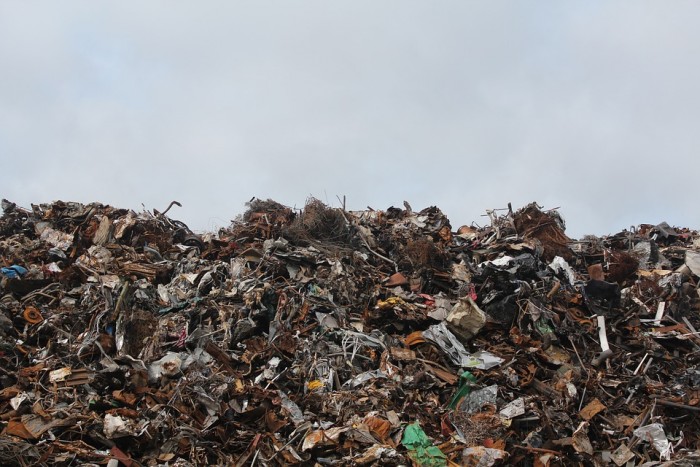India’s waste-pickers are the last line of defence against rampant pollution. But their role in the country’s waste cycle is detrimental to their health, and as the sector is informal, it leaves them with little income, little prospects for growth and little security. Indian tech solutions company Mindtree launched an initiative to change this reality. I Got Garbage is a digital platform that connects waste-pickers to India’s mainstream economy with the aim to treat waste as a resource.
As of 2015, the South Asian country reportedly generates 14 million tonnes of garbage daily, only 83 per cent of which is collected and 23 per cent treated. The untreated garbage ends up in one of the numerous landfill sites that form part of India’s major cities. There, the poorest of the community finds a livelihood in the trash. According to The Wire, It has been estimated that annual waste generation will likely increase to 165 million tonnes by 2030, requiring 66 000 hectares of land.
Improper waste management and the rise of waste generation as a result of rapid urbanisation has raised serious health and sanitation issues. Untreated waste in the public sphere increases the risk of breathing problems, bacterial infections, asthma and other infections. It’s also taxing on the environment. Decomposing organic waste produces greenhouse gases and also contaminates water and soil.
Activists have pointed to the segregation of waste as a possible solution, calling for segregation at the source – households, streets and neighbourhoods. To do this, local government authorities have been called upon to build the infrastructure required to collect, segregate, transport and process solid waste effectively. At the same time, some initiatives have focussed on the people most involved and affected by the collection of waste – India’s ragpickers.
I Got Garbage helps waste-pickers organise themselves into a franchise by using digital tools to create an online marketplace where waste generators can buy waste management services from ragpicker franchises. The initiative actively campaigns for waste management and helps the waste pickers access social security schemes.
The initiative’s website reads:
“I Got Garbage uses the power of IT to add predictability and structure to the work of the informal sector (ragpickers, scrap dealers) and social businesses.
We are a Cloud-based IT platform, and offer capabilities such as an ERP for ragpickers, Citizen Engagement Platform, Waste Management Services Marketplace, and a Ragpicker Benefits Tracker. Additionally, we work with social businesses towards process improvement as well as help build partner ecosystems; such that we can collectively help achieve our goals of "dignified livelihood for ragpickers" and "fewer landfills for all".”
In one case study, a 33-year-old Bangalore resident who grew up in a family of ragpickers adopts the I Got Garbage business model to better monetise his skills while providing an essential recycling service to his community. He employed 10 former ragpickers to sort through as much as 12 tonnes of dry waste every month, compared to the 500kg his whole family managed when he was young. At the same time, 75 per cent of his customers are now also segregating their waste at source.
Around 5200 ragpickers signed with I Got Garbage in the first year. According to the initiative, their wages have doubled, and they enjoy much healthier work conditions.
For now, Mindtree is working to perfect their model and is hoping to bring bigger recycling facilities into Bangalore to meet demand. The ultimate goal is to create a kind of cut-and-paste business strategy that can be adopted in any city struggling with waste management, awareness and the wellbeing of its waste pickers.







